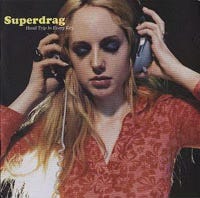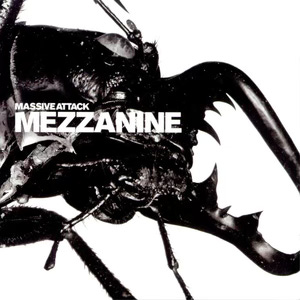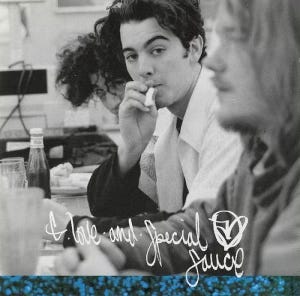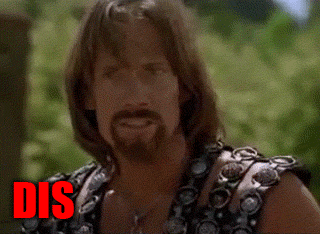Inspired by Rob Harvila’s podcast (and now book) 60 Songs That Explain The ‘90s, in which he reads sprawling and personal and funny and weird and rambling essays about songs he believes explain how the 90’s were, I thought I’d write my own version: 90 Songs That Explain My ‘90s. Emphasis on MY.
I promised no sprawling essays, though. Blurbs, I said, just blurbs. Or essay-sized blurbs. But that’s been more of an optimistic thought than an actual execution.
As always, you can listen along via ever-growing 90 Songs That Explain My 90s playlists on Spotify or on Apple Music, should you desire to follow along at home.
17. Superdrag - I’m Expanding My Mind (1998)
Superdrag had a hit song, I’m told. It’s “Sucked Out” from their 1996 major label debut, Regretfully Yours. I couldn’t sing a note of it for you, off the top of my head. That’s because it falls in that weird little 1995-97 pop culture void that was my LDS mission. I don’t know the song at all. I just summoned it from the depths of the pop culture void to re-familiarize myself with it (aka: pulled it up on Spotify) and it sounded alien to me. “Sucked Out” has 5,219,000 more streams than the band’s second-most streamed song1. So, Superdrag gets the one-hit wonder tag, which—in this case and in my opinion—is more quantitative than qualitative.
You won’t find the song I know (and love)—”I’m Expanding My Mind”—until you get to their third-most-streamed song2, at just under 400k streams.
The album I love is the 1998 follow-up to the breakthrough album with the hit. Head Trip In Every Key is the album Superdrag made after the success of “Sucked Out”, when Elektra Records gave them more money and when the band knew this might be their only chance to make a bigger-budget studio album. The band wanted to make the best thing possible, an objective that sounds like it should align with what Elektra Records would want too, right?
Wrong. Elektra’s definition of the best thing possible was “radio-friendly hit songs.” And they were not impressed3 with the radio-hit-ability of Head Trip In Every Key. The label quickly washed their hands of the band, half-heartedly throwing the songs “Hellbent”4 and “Do The Vampire”5 to radio while pulling the band’s touring support (reduced to six months) and axing their music video budget (to zero).
And so it worked out that Superdrag’s awesome, painstakingly-crafted studio masterpiece got sent into the world with barely a lick and a promise, swallowed in the pre-shocks of nu-metal and the oncoming swell of pop boy bands. Elektra dropped Superdrag before their next album. No one was surprised.
But make no mistake: Head Trip In Every Key is every bit the “best thing possible” from Superdrag and for the rest of us. Unless you’re not down with power pop masterpieces. It’s got little bits of Teenage Fanclub and Sloan, pieces of The Replacements’ Paul Westerberg, plenty of Matthew Sweet and Big Star. In another, fairer universe, they’d have gotten the acclaim of, at least, a pop-driven band like Fountains of Wayne.
On the one hand, the songs are rooted in pop—great melodies, sugary musical highs, unexpected chordal twists—and rock, with fantastic alternately rich and gnarled guitar tones and propulsive backbeats. And on the other hand, they are deceptively complex arrangements. And you can hear the budget in “luxury” production touches like orchestral string arrangements.
I have to admit here: I have found only two people on earth (the Tower Boston coworker who recommended it to me and then esteemed guitarist and lawman Mark Phillips) who agree with me re: the masterpiecitude of the album. That’s ok. Same goes for James Ida’s Let It All Come Down and The Cardigans’ Long Gone Before Daylight, among other underloved masterpieces.
On another note, it took me a long time in life to be ok with liking only a specific portion of an artists’ discography6. I honestly used to feel guilty if I only liked one album, like I was somehow betraying the artist and/or being a fake fan.
But I don’t need any other Superdrag albums in my life. This one does more than enough for me.
18. Del Amitri - Driving With The Brakes On (1995)
Speaking of bands that never made the commercial leap (in the U.S. at least) and bands wherein I’ve only ever bothered with one album7, here’s Glasgow’s own Del Amitri.
I like the whole album. The song you might have heard on the radio is the catchy-as-all-get-out adult alternative staple “Roll To Me” which is as airtight a pop song as you were gonna find in 1995. No fat. No excess. Just a steady and glorious diet of sugar.
The one for me, though, has gotta be the far more downbeat “Driving With The Brakes On.” It teeters between melancholy and romance. It’s sad and determined all at once. It’s regretful and resolute. Everything I try to do as a songwriter with the bridge section of my own songs can be found in the DNA of this song’s bridge—the musical lift, the big emotion, the change of scene. Enviable. Majestic. Grand. Perfect.
19. Massive Attack - Teardrop (1998)
One of the managerial perks of my summerlong stint as manager at Tower Records in Boston was getting to choose which CDs to play over the store PA system. I had some go-to’s during my typical 6- or 8-hour shifts, some more popular with my coworkers than others. One coworker asked me if I was ever going to play something that wasn’t depressing.
Massive Attack’s Mezzanine was universally loved (and sometimes very depressing!) and thus got the nod at least once every few days.
Trip hop as a genre felt so mysterious and fresh and modern and…British… at the time. And nobody8 was doing it better than Massive Attack.
Mezzanine is the bands’ peak, to my ears, and a solid case for the making of albums. The whole metronomic thing feels… of a piece. A mood—strutting, slinking, stumbling, skulking, sulking, sneering, menacing, seducing—that evolves over the course of the album. It feels creepy and sinister and spooky and sexy and 4am. Deliberately unsettling.
(Rob Harvilla, the inspiration for this particular series of posts, made fun of the often-whispery British pseudo-rapping by the group. But I think there’s a place for it in this music, so I stand in its defence. See? I even spelt “defense” the British way there!)
“Teardrop”, though, was more than just “interesting production” and 90’s beats. It had a song in there. And a good one, sung immaculately by Cocteau Twins’ Elizabeth Fraser9. If you know Cocteau Twins, you know that their lyrics are often indecipherable (to the point where you can’t even discern a language). This song follows that in some ways, the beauty of the melody and the vowels doing more lifting than the actual words.
EXCEPT! Check out this simple first line, where Fraser’s lyrics are uncharacteristically uncloaked and simple:
Love, love is a verb
Love is a doing word
It’s not just one of my favorite songs from the 90’s. It’s one of my favorite songs ever. Just sublime. I never tire of it.
The day I gave my two weeks’ notice, I immediately cashed in my employee discount on this one.
20. Nanci Griffith- Going Back to Georgia (1994) and Sordid Humour - Barbarossa (1994) aka my irrational love for Adam Duritz at his peak
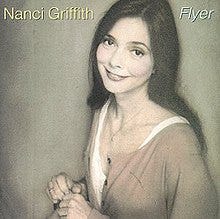
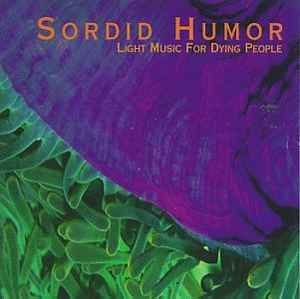
Back when humans used to purchase music (rather than rent a low-grade version of it from songwriter-hating tech companies), one way you could find new music was finding out what the musicians you loved were listening to. Another way was to keep an ear out for music that your favorite artists guested on.
And from about 1993 to 1999, there weren’t many contemporary artists more favorite in my pre-emo, big feelings world than Counting Crows (and lead singer Adam Duritz).
Nanci Griffith’s “Going Back to Georgia” and Sordid Humor’s “Iceland”—along with The Wallflowers’ ubiquitous “Sixth Avenue Heartache” and Ryan Adams’ “Answering Bell”—are strong evidence in the case for the power of Prime-Era Adam Duritz. Everything that made/makes Duritz great AND makes him a punching bag is evident in these songs: that unique, expressive nasal cry-sing (or whine, depending on how you feel about him), his undeniably unique personal/musical touch (or “need to be in the spotlight/inability to exist in the background”, depending on how you feel about him), his innate gift for musical ideas and improvising yearning melodies (or “inability to sing the hits the way he recorded them” for frustrated fans of the band’s live shows, in which Duritz treats his studio-recorded melodies as optional at best). It’s all there.
I was already a longtime Nanci Griffith10 fan (yes, this is a backdoor way to get her on this list), but had kind of lost track of her contemporary albums until someone told me that Adam Duritz guest-sang on her newest album (which featured members of U2 and Indigo Girls and Emmylou Harris and Mark Knopfler too). Duritz’s vocals inject the song with some life, lending it just a bit of wild and unruliness.
Where Griffith was a well-established artist (having just won a Grammy for Other Voices Other Rooms), Sordid Humour was the opposite. They were an indie band way off the radar. Like, in a whole other multiverse. I bought Sordid Humour’s11 one album12 solely to hear Duritz’s (awesome) guest vocals again after hearing “Barbarossa” one late night on MTV’s 120 Minutes. I even tried to get a band I was in to cover this song just so I could try to do my best Duritz impression. It didn’t take.
I was a fanboy, ok?
There was a stretch of years where I could play every song (besides “Ghost Train” because, of course, besides “Ghost Train13”) from August & Everything After and most of the songs from Recovering The Satellites (and a good chunk of the arrangements from their very good unplugged record). There was a time when I would’ve sold my soul to write a lyric like:
Daylight fading
Come and waste another year
All the anger and the eloquence are bleeding into fear
Moonlight creeping around the corners of our lawn
When we see the early signs that daylight's fading
We leave just before it's gone.
It was all so meaningful.
Fast forward a bunch of years and we’d find out Duritz’s dreads were extensions and the band would release a regrettable Joni Mitchell cover and and an even more regrettable song for the Shrek 214 soundtrack and the songs wouldn’t be quite so good and he’d name their latest studio album Butter Miracle Suite One15 and it was, uh, less meaningful. To me, at least.
I’d lose the thread. Maybe Duritz didn’t lose it. I just lost him.
21. G. Love & Special Sauce - Cold Beverage (1994) or Stepping Stones (1997)
Context matters. See, just because a white dude from Philly can pull off talkie-rapped lyrics (my favorite song on the debut album is probably actually “The Things That I Used To Do”14) over funky music does not mean you can. And it definitely doesn’t mean you should, no matter how much you love Beastie Boys.
I had to learn the hard way.
Yes, dear reader, I had an ill-fated dalliance with whiteboy rap over funky instrumentals. First, it was in my college jamband, when we brought on my friend Jeff to freestyle rap over our freeform jams, in what we thought was really forward-thinking music. If I’m generous, the songs with Jeff were like if 311 was a Dead-influenced 90s jamband and their 50/50 sing-to-rap ratio was more like 70/30. And that 30% was still far too much. It wasn’t Jeff’s fault, though. I remember distinctly one of Jeff freestyles in which he referenced “water wings” off the dome, so maybe we were genius? Or Jeff was, at least. Post-that-band, my own version—as a songwriter/musician when I had the temerity to try to mix the two genres myself—probably singlehandedly invented the word “cringe.” I want to thank my songwriter friends who stood by me (and maybe even nodded their heads soulfully) while I used to play my one song that had some white-rapping in it during our songwriter gigs. I also would like to indict them for poor friendship on the grounds of letting me play my one song15 that had some white-rapping in it.
22. Beastie Boys- Jimmy James (1992)
This, with all due respect to Eminem and Mac Miller and Aesop Rock16, is how white rapping is done. I listened to this song anytime I needed a pick me up in high school and it never failed me once.
I could’ve named 20 other Beastie Boys songs.
Should’ve, honestly.
451,354 streams for second-place “Phaser” from the same album. This song is even less familiar.
My other favorite Superdrag song, “Amphetamine”, doesn’t even crack their Top 10 most streamed.
It has some Beatles vibes, building as it does from the poppy piano chords and sing-songs melody. There are also no fewer than three different guitar parts (and tones) that a more insecure songwriter (me!) would’ve spread out into three different songs. (The first one at 1:49, the second one at 2:54, and the third one at 3:45.) Instead, Superdrag used them all to make one song. I told you: they were gonna make the most of what they assumed (correctly) might be their last big budget shot.
Superdrag’s principal singer and songwriter John Davis contends that “Pine Away” and “The Art of Dying” would have been better singles. You’ll never hear me argue that streaming numbers are qualitative, but, as good as I find those songs to be personally, neither Davis-picked song is more-streamed than the label-picked singles. The two songs I love most (“I’m Expanding My Mind” and “Amphetamine”) though are closer, numbers-wise. SOMEONE HIRE ME TO DO A&R!!!
The history of record labels being sent all-time classics, deciding they don’t like them, and then sending bands back to the drawing board is rich. Here are just four of them, off the top of my head:
Wilco / Yankee Hotel Foxtrot (one of my all-time favorites)
Marvin Gaye / What’s Going On
Tom Petty / Full Moon Fever (this one is just…unbelievable)
Fiona Apple / Extraordinary Machine
Thank you, Neil Young’s Are You Passionate for curing me of All-Or-Nothing fandom.
I actually listened to some non-Twisted Del Amitri songs today. And they were pretty good. Guy has a knack for a chorus and a great raspy voice.
OK, so maybe Portishead was doing it just as well.
Today I learned that the song was originally pitched to Madonna! And Madonna was upset when Massive Attack opted to use Fraser (a far superior singer, in my opinion, if nowhere near the cultural icon). I get why Madonna was mad.
Nanci Griffith was one of my first music-world crushes, before I even saw her, just listening to the dubbed version I had of her live album One Fair Summer Evening. Some people take issue with the (put-on) Aw Shucks Folksiness of her live persona. But I find it charming. The two times I saw her live in concert were transcendent. That live album is still my favorite thing she ever did, probably mostly because it reminds me of seeing her in-person.
And Dog’s Eye View, which I ended up liking too. Peter Stuart, you deserved better!
Today I learned that by the time I bought the album (Light Music For Dying People), the band had already been broken up for two years. They barely existed at all.
“Ghost Train” is fine. It has the misfortune of being an average song on an album that is otherwise way better than just fine.
I listened to some G-Love today and, honestly, I still dig it. There’s a time and place for it. I just should never have tried my hand at it.
Incidentally, the song started with a (sung) line stolen/repurposed from Sordid Humor’s New Order-esque song “Iceland.” His line was “any given time it’s really only weather” and my riff on that was “Any given time it’s really only weather….or not you really want to go.” (Feel free to read that last sentence in the same voice as Vanilla Ice trying vanillasplain the difference between the iconic bassline in Queen/Bowie’s “Under Pressure” and that of his mega-hit song “Ice, Ice, Baby” [spoiler: there was no difference].) The song went on (and on), in free association style, to mention Tom Waits, basketball star Rasheed Wallace, Harry Nilsson and who knows what else.
And the 1985 Chicago Bears.





